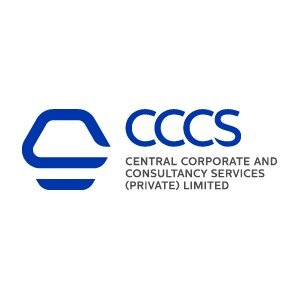Best Water Law Lawyers in Sri Lanka
Share your needs with us, get contacted by law firms.
Free. Takes 2 min.
Or refine your search by selecting a city:
List of the best lawyers in Sri Lanka
About Water Law in Sri Lanka
Water Law in Sri Lanka covers the regulation, protection, management, and allocation of water resources across the country. It includes the legal frameworks that address the rights, responsibilities, and obligations of individuals, communities, government agencies, and private companies regarding the use and protection of water sources such as rivers, lakes, reservoirs, groundwater, and coastal water bodies. Water Law overlaps with areas such as environmental law, land use, agriculture, and public health, since water is vital for life, livelihoods, and sustainable development.
Why You May Need a Lawyer
Seeking legal advice on Water Law in Sri Lanka is important in several scenarios, including:
- Water Rights Disputes - When conflicts occur between landowners, farmers, or communities over access or usage of water sources.
- Licensing and Permits - When you need to obtain, renew, or challenge a government-issued water use permit for irrigation, industrial, or commercial purposes.
- Environmental Protection - If you are involved in or affected by activities that might pollute or harm water bodies and need advice or representation on compliance with regulations.
- Infrastructure Projects - During the planning or execution of construction projects impacting waterways, such as dams, canals, or hydropower schemes.
- Regulatory Compliance - To navigate the complex registration, reporting, or compliance processes set by water management authorities.
- Land and Property Transactions - When buying, selling, or leasing property with water assets or rights attached.
A lawyer can help clarify your rights, prepare necessary documentation, represent you in court or administrative hearings, and negotiate with other parties or government authorities.
Local Laws Overview
Key components of Sri Lankan Water Law are determined by various statutes and regulations, including the National Water Resources Policy, the Water Resources Board Act, the Irrigation Ordinance, the Mahaweli Authority of Sri Lanka Act, the Coast Conservation Act, and provisions within the Environmental Protection Act. Some important aspects include:
- Ownership and Rights - Water resources are primarily owned by the State for the benefit of the people, and individual or communal water use is allowed through licenses or customary rights.
- Permitting System - Certain uses, such as large-scale extraction, irrigation, or industrial use, require permits from relevant authorities like the Water Resources Board or Irrigation Department.
- Protection of Drinking Water - Stringent rules exist around sources used for public water supply to prevent contamination or over-use.
- Pollution Control - Discharging waste or pollutants into water bodies requires compliance with national environmental standards and is subject to heavy penalties.
- Community Water Management - Local water user associations and committees play a role in managing small-scale irrigation and drinking water projects, especially in rural areas.
- Dispute Resolution - Water-related disputes may be resolved through administrative processes, mediation, or by the courts, depending on the nature and scale of the issue.
Frequently Asked Questions
What is the main law governing water use in Sri Lanka?
The primary laws include the Water Resources Board Act, the Irrigation Ordinance, and specific regulations under the National Water Resources Policy, depending on the type and use of water.
Who owns the water in rivers, lakes, or on private land?
Most water resources are considered public property, managed and regulated by the State, although individuals may hold usage rights through permits or customary law.
Do I need a permit to use water from a stream or river for irrigation?
Yes, significant abstracting of water for irrigation, commercial, or industrial purposes requires a permit from the relevant government authority.
How can I settle a dispute with my neighbor over water access?
Disputes can be resolved through local administrative offices, community mediation, or, if necessary, by legal action in courts.
What regulations apply if I want to build a well on my property?
Regulations vary depending on the location, intended use, and depth of the well. In many cases, approval from the Water Resources Board or local authority is needed.
Can I be fined for polluting a water source?
Yes, polluting any water body without proper treatment or permission is an offence under environmental and water laws and can attract significant penalties.
Who is responsible for water quality in villages and towns?
Water quality is generally overseen by local authorities, the National Water Supply and Drainage Board, and the Ministry of Water Supply, depending on the scale of the system.
How do I obtain a permit for commercial water use?
You must submit an application to the Water Resources Board or the relevant agency, providing technical and environmental information, and undergo an assessment process.
Are there special rules for using groundwater?
Yes, extracting groundwater for commercial or significant agricultural use requires registration, permits, and sometimes environmental clearance.
What should I do if a development project threatens a nearby water body?
Contact the local Environmental Authority, the Water Resources Board, or seek legal advice on how to object to or comment on the project under the public consultation process.
Additional Resources
People seeking more information or assistance with Water Law in Sri Lanka may find the following resources helpful:
- Water Resources Board - The main government body overseeing water policy, regulation, and development.
- National Water Supply and Drainage Board - Responsible for public water supply and wastewater management.
- Ministry of Water Supply - Sets national policies and coordinates water sector development.
- Central Environmental Authority - Oversees pollution control and environmental protection of water sources.
- Irrigation Department - Manages irrigation water, infrastructure, and disputes related to irrigation.
- Local Pradeshiya Sabhas and Municipal Councils - Manage small-scale water use and public supply at the local level.
Next Steps
If you have a question or issue related to Water Law in Sri Lanka:
- Identify the nature and details of your water issue or dispute, including location, type of usage, and the parties involved.
- Contact the relevant government agency for guidance on permits, rights, or complaints.
- Collect all relevant documents, correspondence, or evidence connected to your case.
- Seek advice from a qualified attorney experienced in environmental and Water Law to understand your options and best approach.
- If you need urgent action, such as stopping harmful activities or addressing contamination, act quickly to secure evidence and seek professional help.
- Be proactive in following up with authorities and legal counsel to ensure your interests are protected.
Understanding your rights and obligations is crucial for resolving water-related legal issues in Sri Lanka. Professional advice can help you navigate the complexities and safeguard your access to this essential resource.
Lawzana helps you find the best lawyers and law firms in Sri Lanka through a curated and pre-screened list of qualified legal professionals. Our platform offers rankings and detailed profiles of attorneys and law firms, allowing you to compare based on practice areas, including Water Law, experience, and client feedback.
Each profile includes a description of the firm's areas of practice, client reviews, team members and partners, year of establishment, spoken languages, office locations, contact information, social media presence, and any published articles or resources. Most firms on our platform speak English and are experienced in both local and international legal matters.
Get a quote from top-rated law firms in Sri Lanka — quickly, securely, and without unnecessary hassle.
Disclaimer:
The information provided on this page is for general informational purposes only and does not constitute legal advice. While we strive to ensure the accuracy and relevance of the content, legal information may change over time, and interpretations of the law can vary. You should always consult with a qualified legal professional for advice specific to your situation.
We disclaim all liability for actions taken or not taken based on the content of this page. If you believe any information is incorrect or outdated, please contact us, and we will review and update it where appropriate.
Browse water law law firms by city in Sri Lanka
Refine your search by selecting a city.

















